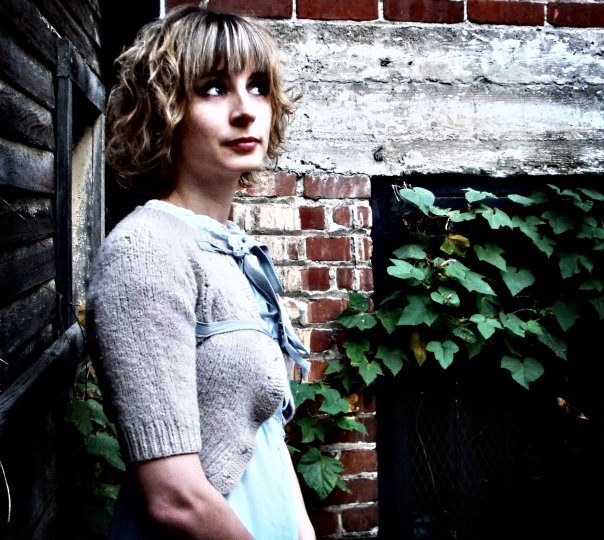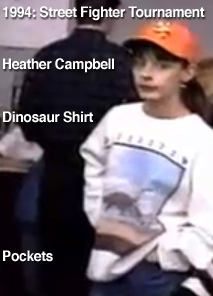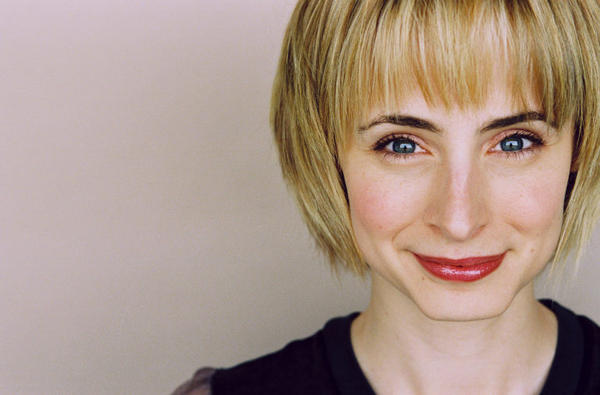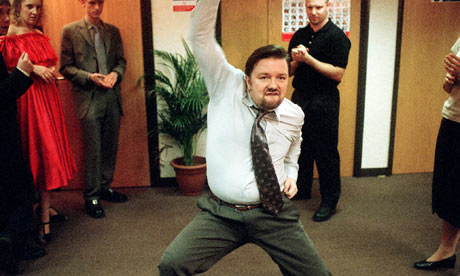Trending
Opinion: How will Project 2025 impact game developers?
The Heritage Foundation's manifesto for the possible next administration could do great harm to many, including large portions of the game development community.

Featured Blog | This community-written post highlights the best of what the game industry has to offer. Read more like it on the Game Developer Blogs or learn how to Submit Your Own Blog Post
In this interview we discuss: her influences, writing in games, her love of Street Fighter and that pesky question of having a vagina in a penis dominated industry. Because of a clip of Heather transforming, parental guidance is advised.


I would like to introduce you all to Play and Geek Magazine's Heather Anne Campbell. She was nice enough to let me horn-in on her valuable Facebook time to answer my hard-hitting questions. Fullfilling my dream, when I started blogging last year, of interviewing my idols; Heather Anne Campbell joins the company of fellow improv comedian/actor Greg Hollimon and Zeno Clash co-creator Carlos Bordeu. Not bad company, if I do say so myself.
In this interview we discuss: her influences, writing in games, her love of Street Fighter and that pesky question of having a vagina in a penis dominated industry. This interview contains witty adult banter and a video clip of Heather Campbell transforming into a Thermos. There is some nudity and parental guidance is recommended.
IT: Question 1: [Nervously rustles papers] I will to start with something light. Which passion came first? Your love of improv comedy or your love of games journalism?
HC: Hahahaha! Well, I was playing video-games long before I was a comedian. But I was also running around in the woods behind my parent's cabin in a made-up superhero costume when I wasn't playing video-games, so I guess I've always had a place in my heart for make-believe and pretend.
Comedy and video-games are the same thing: Fantasies within set rules. I love both of them, equally. When I can marry the two in some future project, I'll be complete.
IT: There you have it. Heather Anne Campbell giving me an exclusive for a possible comedic superhero (or heroine) game.
Question 2: Speaking of comedy in video games, with this year's releases of Brutal Legend, Ratchet & Clank and even Ghostbusters, do you see a day where good writing and specifically funny writing will be the norm?
HC: I think the funniest game this year was Uncharted 2: Among Thieves. The writing in that game was spectacular, and the comedy came from moments of real, human truth. Not that there's a lot of truth in a man mowing down hundreds of henchmen and hanging from buildings being shot by helicopters, but Nathan's quieter moments were punctuated with some really sharp one-liners.
I think good writing and specifically funny writing will become the norm in games when it becomes the norm in movies.
That's my way of saying, "Most entertainment is terribly written, why should games be any different?" There are funny games just as there are funny movies, but most movies are not very funny.

IT: Typically, I shutter when I see the games-to-movies comparison, but I can not disagree with you there. From books, movies and theater there is a lot of sub-par material being produced.
Question 3: Now, I see you are a fighting game fan. I am a fighting game fan as well [who else would own a copy of Star Wars: Masters of Teras Kasi? Awful, just awful], but your forte [correct me if I am wrong] is the Street Fighter series. You've played it competitively and have seen the many iterations and spin-offs.
What was it about the Street Fighter series that spoke to you?
HC: So many things about Street Fighter spoke to me, but my introduction to the game was one of simple proximity. Street Fighter II was at my local 7-11 when I was a kid. I stole quarters from my dad's dresser and went over and played.
Now, I appreciate the games for their extraordinary crunch. Street Fighter has a snap to it that no other game seems to share.
Honestly, I could write an essay about my love of Street Fighter -- and I have before. I don't know how much more I can go into it without this turning into a lengthy monologue. It's a balanced, fair game that engages both new and seasoned players alike.
IT: For me, Street Fighter II: Special Championship Edition was what brought the arcade home for me. Third Strike is what turned me from a boy to an even larger boy.
Question 4: How did you feel about the changes made in Street Fighter IV?
HC: I think the biggest change for Street Fighter IV was the speed of the game. A lot of the other shifts are cosmetic. I really, really dislike the cinematic Ultra Combos; I think they take too long, and add to the sluggish feel of the title.
The focus attacks (and focus cancels) are fun stuff. I like the new take on the parry system, and the damage a character risks by absorbing one move. It brings a distance game back to Street Fighter -- something that was missing in Three.
IT: I'm really surprised at how the hardcore community has kind of reluctantly accepted Street Fighter IV. The timing seems right for 2-D fighters, but my last question in regards to the fighting game culture is:
Question 5: You are a fan of great writing as well as fighting games. Do you ever see the day where the two meet?

HC: Though I don't see the two as mutually exclusive, I have to say that fighting games are more about mechanics and balance then they are about writing. The words and story of a fighting game aren't as important as the way the game works.
Does chess have good writing? Does it need it?
IT: Very true, but great literature and cinema has been produced involving the game of chess. I mean who doesn't love Searching For Bobby Fischer? Although, I had issues with the game, I think BlazBlue's style of story telling in a fighting game is a step in the right direction.
Question 6: Switching gears, let's talk about your influences. Who [or what] influences you in your many facets of life?
HC: Oh boy. The list of people and things which influence me is too, too long to rattle off. I wouldn't know where to begin!
I think The BBC Office is a critical piece of entertainment. I love Woody Allen. I read a lot of what Ray Kurzweil writes, as well as Richard Dawkins. And as silly as this may sound, tim rogers is my favorite games journalist who doesn't work for Play Magazine.

IT: "Inside Paper...inside the paper bin"-D. Brent
I have issues with Woody Allen. I like a good majority of his movies, but I feel like he's scouting for a new wife whenever I see the leading lady.
Question 7: Speaking of Play Magazine, as one of the fortunate few that has the joy and possible pain] of producing work in print form, I think it would be interesting to get your perspective on where print is now. Where do you see print publications going?
HC: Print won't die until someone releases a paper-thin, full-color, tabloid-style computer that can be read in the sun without glare. And then, the style of print will transition to that device. I think we're in the Wild West when it comes to the internet right now, but eventually the channels of information will be controlled by advertising interests and private gatekeepers.
Sure, anyone can blog, but not everyone has access to The President -- and those that do will start charging for that access.
IT: This is very true, coming from someone who has worked for print publications there really is no substitute for the occasional paper cut. Both avenues have their pros and cons.
Speaking of cons, [puts Phil Donahue glasses on] admittedly I am an on and off reader of Play Magazine. More "on" these days, because of the need for print in an online leaning business. Working for a print publication, I realize that the Average Joe [or Jane] buying at a newsstand is more profitable than committing to a subscription.
I have also noticed PlayMagazine.com offers a "Girls of Gaming" subscription, separate from the Play magazine subscription. Understandably, there is an audience out there and it is no secret that they are majorly male and keeping readership up is an issue with print. [Unfortunately this is where my obligatory, "You're a woman what's it like..." question comes in, but let's try something different]
Question 8: Being a woman in games journalism probably comes with its fair share of hurdles. What do you think has been or has not been accomplished in the gaming community as it relates to sex and gender?
HC: I'm not really good at these feminism questions, so if I offend my college professors here, I apologize.
I think that gaming is one of the few places where gender isn't a barrier to entry. Sure, a lot of the content in gaming is programmed by men, with the male gaze in mind. We could deconstruct this as a social problem -- boys getting pushed into different career paths than women from an early age, the reluctance of companies to hire women to dev teams, whatever. But gaming itself is not an activity where men and women have to be separated because of their natural physical differences, or sexual dimorphism. Gaming, it could be argued, is an athletic activity, yet girl gamers and boy gamers can access it on equal ground.
Content, as I mentioned, is a different issue. There's plenty of press on the fetishization of women in games, but I would argue that the representation of men in games is just as heightened, just as overtly ridiculous. There are probably as many bare-chested, super-sexualized pecs in games as their are corset-supported, physics-enabled sets of tits.
In terms of community, I think both male and female gamers are talked down to by the industry. The language that targets women is no different from the language that targets men, and it all comes down to a question of maturity and intelligence, not penis and vagina. Gaming insults everyone. The companies that produce games need to realize there is an audience hungry for deep, thoughtful content, and stop pandering solely to our basest instincts.
Check out the I'm a Transformer Too video at FunnyOrDie.com - watch more funny videos
IT: Exactly, games like Bully and Dragon Age are great examples. They both introduce something as simple as kissing or having a relationship with someone of the same sex. Both jokingly execute this goal, but do little in the 'let's make this a big deal' department. I think this is a good thing.
Question 9: As a writer and comedian you have worked with some of the best in both industries. Working with The Groundlings and Upbright Citizen's Brigade among other great groups had to be a great experience. And writing for Play and Geek I see has kept you more than busy. What have you learned from both of these very different fields that a lot us on the outside wouldn't expect?
HC: Nobody, anywhere, knows what they're doing. Everyone in the whole world is waiting for someone to take charge. And there are very, very few leaders.
IT: Heather, you're scaring me. But if the world is going to end, I can say I interviewed one of my idols in some sort of weird 'e-format'.
Final Question: We did it, we made it to the end! Do you have a question or plug of what we can expect from you in the future?
HC: On video-games: One of these days, you might see more of me in person than in print! Until then, let's play some Street Fighter! On comedy: Keep your eyes peeled for The Midnight Show, though it may have another name by the time it makes it to television. Perhaps The Okay Show. On this interview: Thanks so much, Isaiah! It's been a blast. And finally, on: Off.
Be sure to check out Funny Or Die for more UCB LA clips and Heather's website, she's quite the accomplished photographer as well.
Read more about:
Featured BlogsYou May Also Like